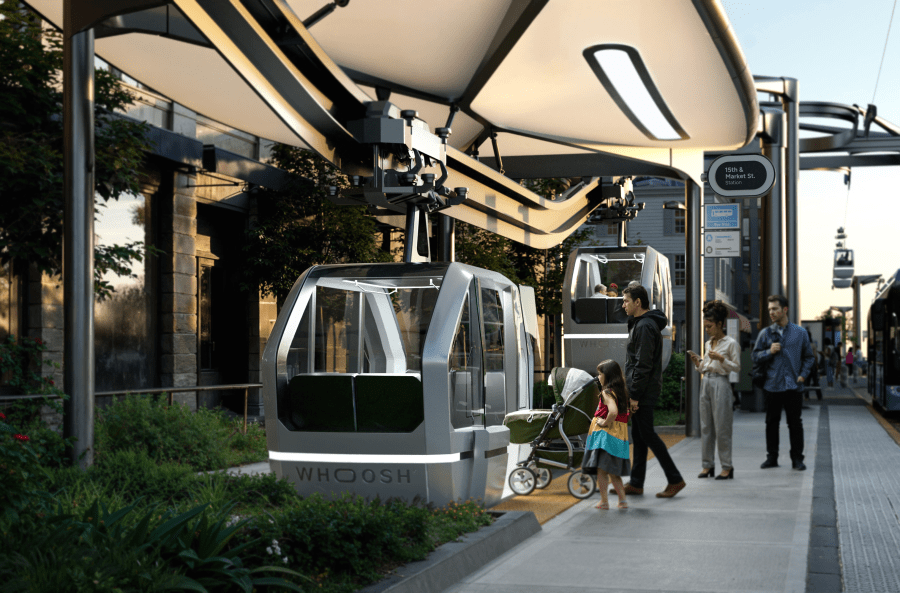Irvine may soon have a new way to appreciate its massive and ambitious Great Park project – from the sky.
Earlier this week, the Great Park Board, which is comprised of elected leaders of the city, voted to move forward with developing an aerial gondola system over the large outdoor space.
The board voted 5-1 to approve a pilot program with Swyft Cities, a transit technology startup, which would involve the company donating equipment to get the gondola system off the ground.
As reported by LAist, agreements will be drawn up between Irvine and Swyft Cities on a one-year trial period worth around $10 million worth of equipment and services, in exchange for being recognized as Great Park’s official mass transit partner.
“The money will cover eight gondolas operating between two stations connecting the visitor center and balloon with a planned retail facility, as well as maintenance and operational costs for three days a week,” LAIst write. “The rest of the time the city would be on the hook.”
Swyft Cities has yet to successfully launch a gondola system in its brief history but is working with other cities to help develop their own plans for the aerial vehicles, its website shows.
Great Park is a massive planned site on a decommissioned Marine Corps base that is currently around 500 acres and is set to expand to nearly 1,300. Its overall footprint when completed will be larger than both Central Park in New York and Golden Gate Park in San Francisco.
The partially completed park already receives millions of visitors per year, and city officials expect even more to come as development of the green space progresses.
The city has discussed ways for visitors to get around the massive park for several years, and the gondola seems to be the system with the most steam.
But concerns about transparency, the future of the transit system once the pilot program ends, and the ability of Swyft Cities to deliver the system were among the concerns raised during public comment.
“Swyft Cities has no completed or operational projects, no history of managing public funding, and no proven ability to deliver at this scale. Accepting a donation to install a pilot without these assurances creates significant risk to the City, with limited recourse if the system fails,” one submitted public comment reads.
One caller, who described himself as a public transit advocate, said the proposal didn’t “pass the smell test.”
But the Irvine City attorney stressed that these latest steps remain exploratory, and there’s no liability for Irvine at this current juncture.
The board ultimately decided to continue exploring the idea, with council and board member Kathleen Treseder the one opposing vote.


